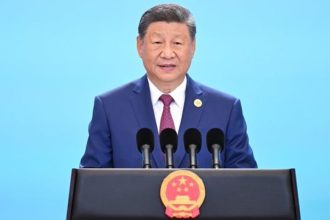The Supreme Court of Pakistan, under Justice Syed Mansoor Ali Shah, issued a landmark verdict on Thursday, reinstating Adil Bazai as a National Assembly (MNA) member from NA-262 Quetta-I.
The court overturned the Election Commission of Pakistan’s (ECP) decision to disqualify Bazai, questioning the ECP’s expansive authority. “Is the ECP above all courts in the country?” Justice Ayesha Malik asked, noting the ECP’s disregard for other institutional powers.
Justice Syed Mansoor Ali Shah also criticized the ECP’s ability to conduct trials, likening it to a trial court. “Does the ECP have the right to conduct trials? They show no respect for courts or magistrates and don’t conduct inquiries,” he remarked.
Justice Ayesha Malik scrutinized the ECP’s handling of affidavits. She highlighted the inconsistency in accepting one affidavit over another without proper inquiry, questioning the commission’s impartiality.
Read: Supreme Court Suspends ECP Decision Disqualifying MNA Adil Bazai
The case began with a complaint by Nawaz Sharif, leader of the Pakistan Muslim League-Nawaz (PML-N). He accused Bazai of switching sides from PML-N to the Sunni Ittehad Council (SIC) after submitting a membership affidavit to PML-N.
During the trial, Bazai’s lawyer argued that the affidavit was fake. Conversely, Nawaz Sharif’s lawyer claimed Bazai’s actions violated the constitution, especially during crucial votes.
The reinstatement of Adil Bazai is a significant win for the politician. It challenges the ECP’s authority over electoral and parliamentary matters. This ruling restores Bazai’s position and calls for reevaluating the ECP’s processes and powers, including how it handles allegations of political defections and the authenticity of parliamentary affidavits.






